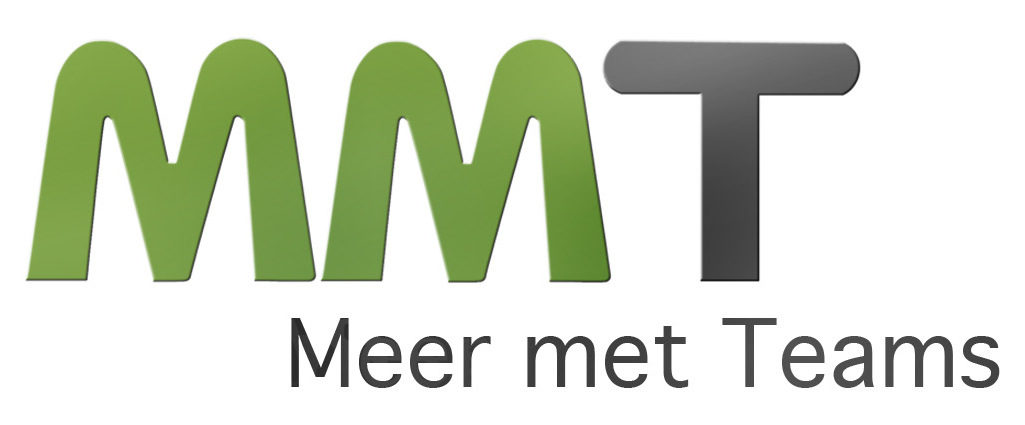Boeiend artikel over Google’s zoektocht naar het ontwikkelen van het perfecte team: http://www.nytimes.com/2016/02/28/magazine/what-google-learned-from-its-quest-to-build-the-perfect-team.html
Mooi om te zien dat ook hun zoektocht laat zien dat psychologische veiligheid in een groep het fundament is voor goede teamprestaties.
“When Rozovsky and her Google colleagues encountered the concept of psychological safety in academic papers, it was as if everything suddenly fell into place.”
Maar hoe creëer je dan psychologische veiligheid in een team? Toch weer bewustwording als belangrijkste stap:
‘Just having data that proves to people that these things are worth paying attention to sometimes is the most important step in getting them to actually pay attention,’ Rozovsky told me. ‘Don’t underestimate the power of giving people a common platform and operating language.’
Bekijk ook de Google hangout “Google’s five keys to a successful team”
Lees hieronder een samenvatting van het artikel en onderzoek met de TeamSpiegel.nu hoe veilig jouw teamleden zich voelen!
Teamwerk wordt steeds belangrijker
- “The bulk of modern work is more and more team-based”
- “Studies show that groups tend to innovate faster, see mistakes more quickly and find better solutions to problems”
- “… people working in teams tend to achieve better results and report higher joob satisfaction”
- “in a 2015 study, executives said that profitability increases when workers are persuaded to collaborate more”
- “..teams are now the fundamental unit of organization.”
Google’s zoektocht
- “Five years ago, Google became focused on building the perfect team. In the last decade, the tech giant has spent untold millions of dollars measuring nearly every aspect of its employees’ lives.”
- “In 2012, the company embarked on an initiative — code-named Project Aristotle — to study hundreds of Google’s teams and figure out why some stumbled while others soared.
- “No matter how researchers arranged the data, though, it was almost impossible to find patterns — or any evidence that the composition of a team made any difference.”
Academisch onderzoek biedt uitkomst:
- “As they struggled to figure out what made a team successful, Rozovsky and her colleagues kept coming across research by psychologists and sociologists that focused on what are known as ‘‘group norms.’’ Norms are the traditions, behavioral standards and unwritten rules that govern how we function when we gather”
- “In 2008, a group of psychologists from Carnegie Mellon and M.I.T. began to try to answer a question very much like this one. To accomplish this, the researchers recruited 699 people, divided them into small groups and gave each a series of assignments that required different kinds of cooperation.”
- “As the researchers studied the groups, however, they noticed two behaviors that all the good teams generally shared. First, on the good teams, members spoke in roughly the same proportion, a phenomenon the researchers referred to as ‘‘equality in distribution of conversational turn-taking.’’
- “Second, the good teams all had high ‘‘average social sensitivity’’ — a fancy way of saying they were skilled at intuiting how others felt based on their tone of voice, their expressions and other nonverbal cues.”
- “Within psychology, researchers sometimes colloquially refer to traits like ‘‘conversational turn-taking’’ and ‘‘average social sensitivity’’ as aspects of what’s known as psychological safety — a group culture that the Harvard Business School professor Amy Edmondson defines as a ‘‘shared belief held by members of a team that the team is safe for interpersonal risk-taking.’’
- Psychological safety is ‘‘a sense of confidence that the team will not embarrass, reject or punish someone for speaking up,’’ Edmondson wrote in a study published in 1999. ‘‘It describes a team climate characterized by interpersonal trust and mutual respect in which people are comfortable being themselves.’’
Conclusies uit het artikel:
- “When Rozovsky and her Google colleagues encountered the concept of psychological safety in academic papers, it was as if everything suddenly fell into place.”
- “What Project Aristotle has taught people within Google is that no one wants to put on a ‘‘work face’’ when they get to the office. No one wants to leave part of their personality and inner life at home. But to be fully present at work, to feel ‘‘psychologically safe,’’ we must know that we can be free enough, sometimes, to share the things that scare us without fear of recriminations. We must be able to talk about what is messy or sad, to have hard conversations with colleagues who are driving us crazy. We can’t be focused just on efficiency.”
- “Rather, when we start the morning by collaborating with a team of engineers and then send emails to our marketing colleagues and then jump on a conference call, we want to know that those people really hear us. We want to know that work is more than just labor.”
- “The paradox, of course, is that Google’s intense data collection and number crunching have led it to the same conclusions that good managers have always known. In the best teams, members listen to one another and show sensitivity to feelings and needs.”
- “The fact that these insights aren’t wholly original doesn’t mean Google’s contributions aren’t valuable. In fact, in some ways, the ‘‘employee performance optimization’’ movement has given us a method for talking about our insecurities, fears and aspirations in more constructive ways. It also has given us the tools to quickly teach lessons that once took managers decades to absorb. Google, in other words, in its race to build the perfect team, has perhaps unintentionally demonstrated the usefulness of imperfection and done what Silicon Valley does best: figure out how to create psychological safety faster, better and in more productive ways.”
- ‘‘’Just having data that proves to people that these things are worth paying attention to sometimes is the most important step in getting them to actually pay attention,’’’ Rozovsky told me. ‘‘’Don’t underestimate the power of giving people a common platform and operating language.’’’
